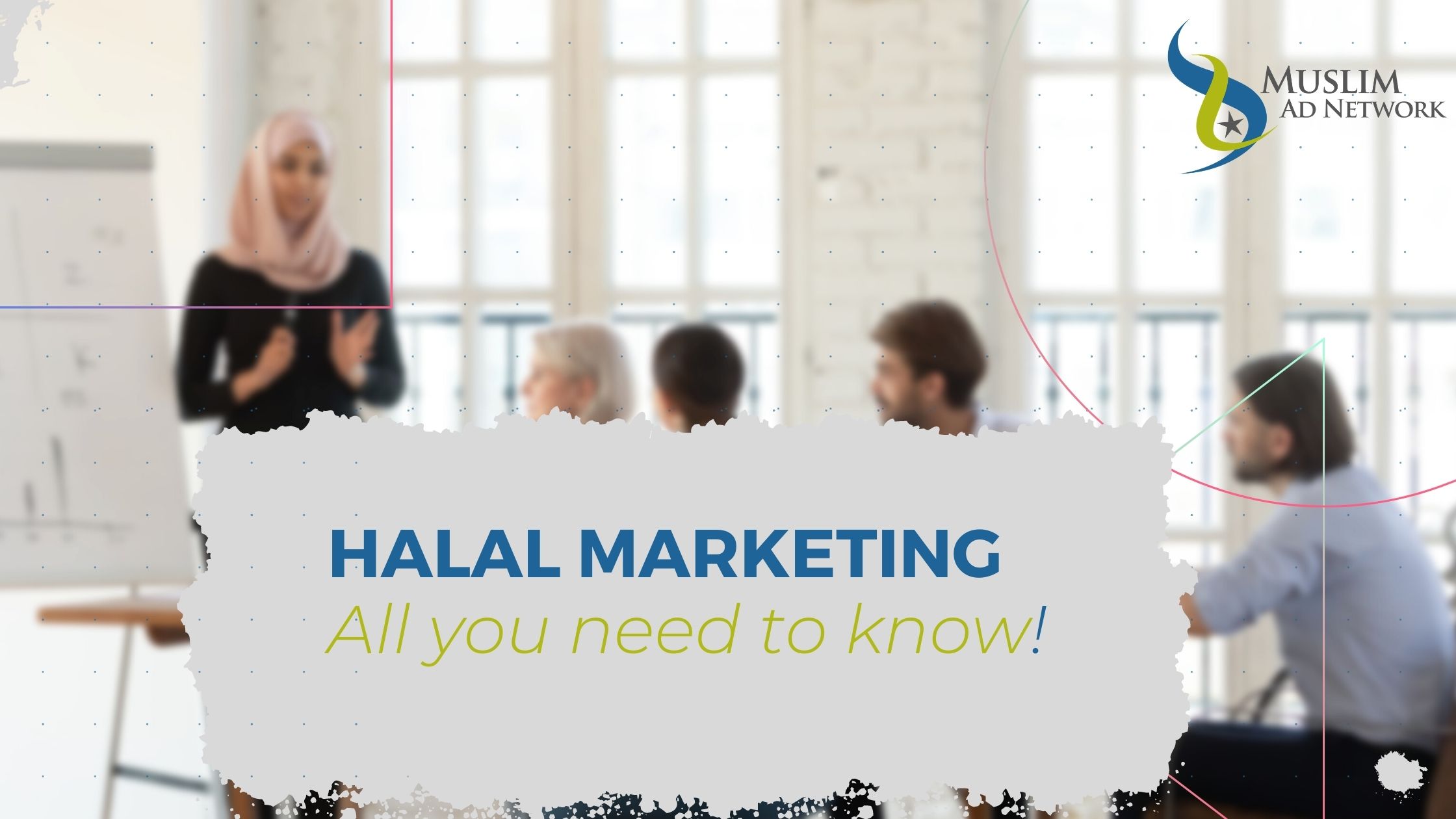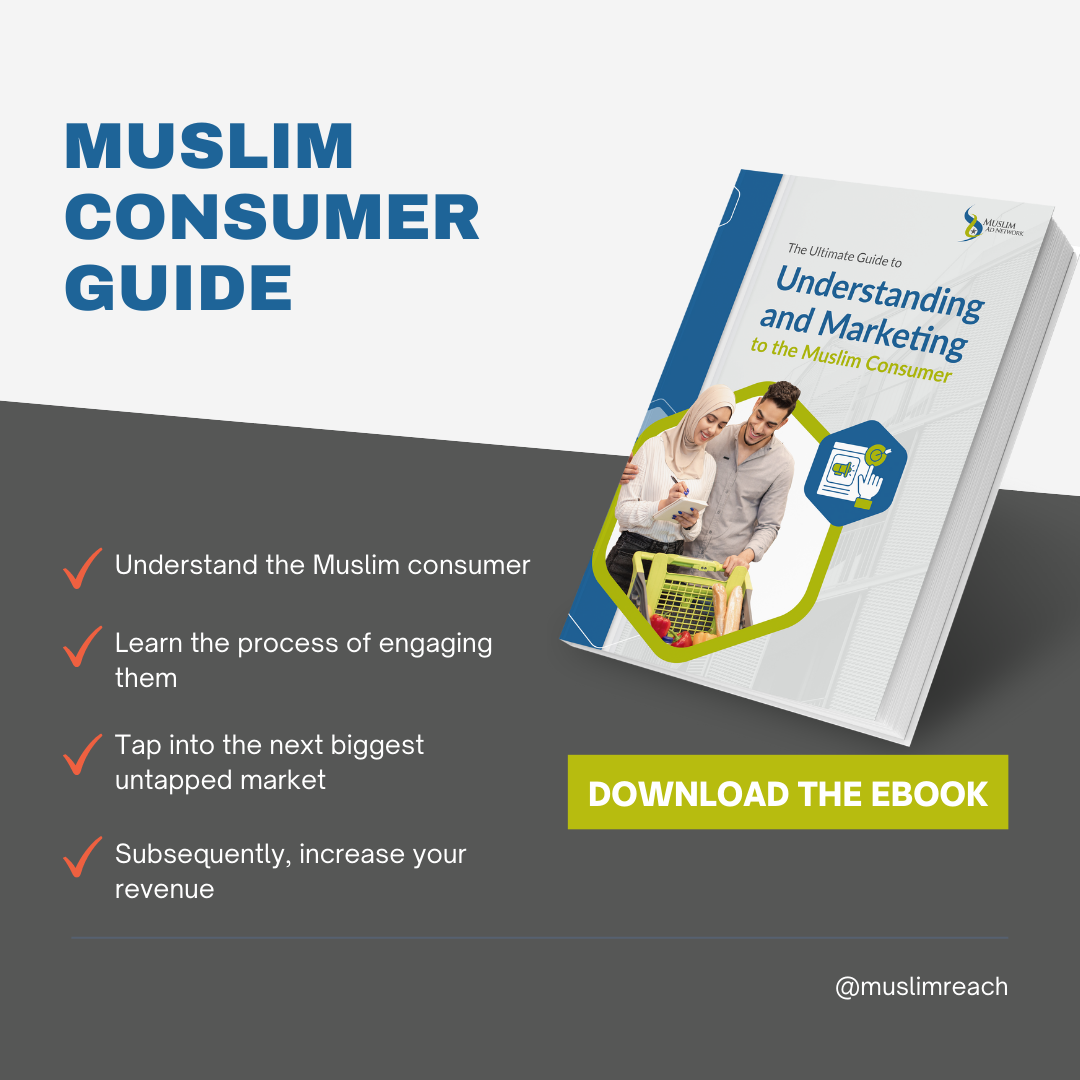
What is Halal Marketing?
Halal Marketing or Islamic Marketing is a concept based on the paradigm that Islam affects Muslim consumer choice. Therefore all marketing activities follow Islamic laws, principles, and guidelines. This includes strategic marketing decisions, designing, communicating, delivering products and services to customers, and everything in between.
Islamic Marketing fulfills needs through Halal products and services with the mutual consent and welfare of buyers and sellers for achieving material and spiritual well-being in the world here and the hereafter
Source: Marketing: An Islamic Perspective
Halal Marketing is relatively new even though Shariah-compliant practices have been around for quite some time now. Muslims around the world have been adamant in consuming halal products and services by inquiring about ingredients and by avoiding products and services that do not conform to Islam. Multinationals are realizing the opportunities of this growing segment.
What is Halal and What is Haram?
Halal and haram in Islamic law are based on the teachings of The Quran and Sunnah (the prophet’s [peace be upon him] way of life). The two regulate every aspect of a Muslim’s life.
The word ‘halal’ is usually misinterpreted as the food that is permissible for Muslims to eat. However, in Arabic, it refers to permissible behavior, speech, dress, conduct, manner, and diet. Sheikh Yusuf al-Qardawi, one of the most prominent scholars of Islam of this generation defines Halal as follows:
… that which is permitted, with respect to which no restriction exists, and the doing of which Allah has allowed, and Haram is that which the Law Giver has absolutely prohibited and the one that commits it is liable to incur the punishment of Allah in the hereafter as well as a legal punishment in this world.
Tajamul Islam and Uma Chandrasekaran explain in their research paper that:
“The ubiquitous influence exerted by the ‘Halal-Haram dichotomy’ in a Muslim’s day-to-day activities make the concept of Halal Marketing applicable and extendable to other products and services besides food. Marketers can cash upon the tendency of Muslim consumers to see halal and haram in everything, by providing the halal versions of their products and services and coming up with innovative products. Muslims around the world are becoming more conscious about the ‘halalness’ of other categories like pharmaceuticals, cosmetics, clothing, banking & financial services, education, leisure & entertainment, and hospitality & tourism services.”
Source: Halal Marketing: Growing the Pie
Halal Marketing Components
Md Mahabub Alom from the Manarat International University defines Halal, or Islamic Marketing as follows:
The process and strategy (Hikmah) of fulfilling need through Halal (Tayyibat) products and services with the mutual consent and welfare (Falah) of both parties i.e. buyers and sellers for the purpose of achieving material and spiritual wellbeing in the world here and the hereafter.
He then breaks down five components mentioned in his definition as follows (paraphrased):
1 Strategy (Hikmah)
In Islam, the word ‘hikmah’ is closely related to the word ‘wisdom’. It signifies sound perception and sound judgment based on the situation at hand. Marketing should therefore apply ‘hikmah’ in every instance.
2 Mutual Consent
Mutual consent, in this case, means that both parties involved in the business transaction must be free of undue pressure, fraud, deception, etc. This is something that we tackled in a previous article: What You Must Know About Islamic Advertising Principles.
3 Need
In Islam, a person should consume according to his or her need. Therefore, where conventional marketing targets consumer wants, for the most part, Halal Marketing in its purest form is based on needs.
4 Tayyibaat (What’s Good)
O mankind! Eat of that which is lawful and wholesome in the earth…
Source: Quran (2:168)
The above Quranic verse defines the eating habits and by extension, the purchasing preferences of Muslims globally. This concept is non-negotiable and unmoved by trends or demographics.
5 Falah (Welfare)
Falah is the concept of ultimate success in this world and the hereafter. It is therefore not confined to worldly and material prosperity. It is attained by sincere faith and righteous deeds.
This concept ensures that businesses do not solely strive for profits but also uphold the welfare of human beings. This must be reflected in all aspects of a business’s marketing activities.
Before we move further, make sure you download The Ultimate Guide to Understanding and Marketing to the Muslim Consumer. Your brand’s guide on breaking into one of the fastest-growing untapped consumer markets in the world.

How Halal Marketing Can Benefit the World
In Islam products and services are not provided solely for profit, but also to fulfill the collective duty of a community. Yes, profit as a motive is permissible and encouraged, but it must not be the sole motivation.
The way a business is conducted is more important than profit. The end never justifies the means. By extension, Halal Marketing does not use deception and trickery to get consumers to buy things they do not need. It also does not encourage them to wrack up debts that eventually put them in financial difficulties.
Marketing should be about value-maximization in view of the greater good of the society rather than the selfish pursuit of profit at any cost.
Halal Marketing can ensure success in both the material and the spiritual dimensions of life. Maximizing the welfare of everyone in society can establish socio-economic justice in every sphere of human life.
Are you interested in Halal Marketing and want to advertise your product or service to Muslims online? Contact Muslim Ad Network today.
start targeting muslim consumers